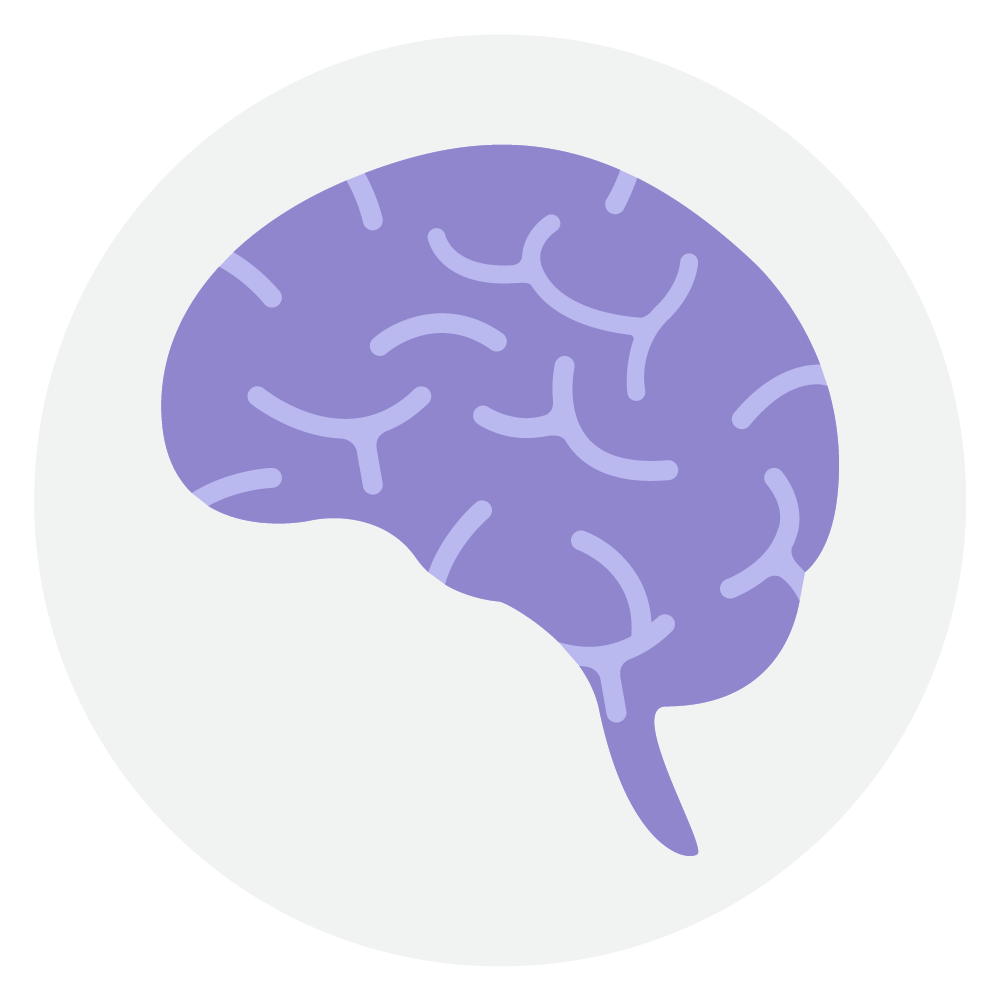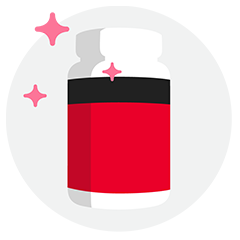Building better brain health

We all forget things from time to time, especially as we get older. Although it’s natural and common to experience this decline in cognitive function, did you know there are ways to boost your memory and improve brain health? With proper diet, nutrition, and brain stimulation, your memory can remain sharp and active as you mature.
Exercising your body and brain
Physical exercise benefits us in many ways, from cardiovascular health to weight management and mood-boosting effects. And believe it or not, exercise also happens to be good for our brain health. Healthy active movement increases blood flow to the brain bringing in nutrients from your bloodstream while reducing inflammation. Chronic stress can result in accelerated cognitive decline, and physical exercise actually provides an outlet for that stress.
Just like you exercise your body with daily physical activity, you want to do the same with your brain. Keep mentally active by reading, doing crossword puzzles or even learning a new dance move. The more you put your memory to use, the sharper it will be. Get creative with your brain training by developing a story that links words you need to remember or creating visualizations and associations to boost memory recall.
Here are a couple of brain-boosting puzzles you can try:
Changing words: Begin with the word WALL and change one letter at a time until you get the word FIRM. Each change must result in a proper word.
WALL
_ _ _ _
_ _ _ _
_ _ _ _
FIRM
Finding colours: Rearrange all the letters to find the four colours mixed up below.
GIODNI
ELAT
AONERG
EMVUA
(Test yourself first and then check your answers below).
Brain food
To improve cognitive function and protect your brain against age-related illnesses like dementia and memory loss, make sure you’re eating plenty of colourful, whole foods. Brain tissue is the primary consumer of glucose (sugar) in the body and requires a specific range to function correctly. Wide swings in blood sugar levels and hypoglycemia (low blood sugar) can affect brain function and memory, so be sure to eat whole foods regularly to maintain steady blood sugar levels. There are a couple of nutrients that benefit brain health in particular.
B vitamins
B vitamins are involved in synthesizing neurotransmitters, which act as messengers in the brain and are vital for performing many body functions, including creating new red blood cells, regulating energy levels, and maintaining proper nerve function. An insufficient supply of neurotransmitters or the nutrients to make them can cause memory loss.
Watch out for symptoms like skin rashes, cracks around your mouth, and scaly skin on your lips to know when your body needs more vitamin B. Food rich in B vitamins includes salmon, leafy greens, eggs, legumes, liver and organ meats.
Omega-3 fatty acids
Omega-3s are a type of polyunsaturated fat that have many benefits ranging from supporting cardiovascular health to boosting cognitive function. There are two types of omega-3s – eicosapentaenoic acid (EPA) and docosahexaenoic acid (DHA), and each one can help the brain in different ways. While DHA is essential for pre- and postnatal brain development, EPA works to support our behaviour and mood. Foods with high omega-3 content include fatty fish such as mackerel, tuna, salmon, and herring.
Choline
Our bodies produce some choline within our livers, but not enough to meet our needs. The body’s cell membranes are composed almost entirely of fat, and choline is a crucial component for the flexibility and integrity of that structure. Choline is required to make acetylcholine, a valuable neurotransmitter for regulating memory, mood, and intelligence. Foods high in choline include liver, eggs, red meat, salmon, cod, chicken, and legumes. Eggs are an excellent source of choline and vitamin B; win-win!
Antioxidant-rich foods
Foods high in antioxidants protect our brains from oxidative stress and may reduce the effects of dementia. Oxidative stress is caused by particles called free radicals, which are unstable molecules that occur in response to surrounding toxins such as UV rays, pollution and cigarette smoke. Studies have shown diets rich in antioxidants, particularly blueberries and strawberries, significantly improve learning capacity and motor skills. Other foods high in antioxidants include beets, carrots, and leafy greens such as spinach, swiss chard, and kale.
Mediterranean diet
The Mediterranean diet is a whole foods diet filled with fruits, vegetables, whole grains, legumes, nuts, seeds, and plenty of heart-healthy fats, such as olive oil, with a limited amount of processed foods, such as sugar and refined grains. The diet has many benefits, including supporting a healthy heart, blood sugar levels, and brain function.
In fact, this eating style has inspired the MIND diet – Mediterranean-DASH Intervention for Neurodegenerative Delay. It’s a hybrid of the DASH diet (Dietary Approaches to Stop Hypertension) and the Mediterranean diet, focusing on food groups that boost brainpower and protect from age-related illnesses like Alzheimer’s. To follow the MIND diet, consume these daily:
- 3 servings of whole grains, fruits, and vegetables
- 1 to 2 servings of beans, poultry, and fish
- Snacks of nuts and berries
- Healthy fat sources, such as olive oil, avocados and nuts

Supplemental support for your brain
In order to obtain all the vitamins and minerals for a healthy brain, we need to make sure we’re covering all our bases. When our diet is not enough, the value of supplementation comes into play. Supplements to consider include:
Ginkgo biloba
An herb that can support mental health by enhancing memory and circulation to the brain. It does this by increasing blood flow to the brain which promotes the dilation of blood vessels and ultimately supports circulation.
Vitamin B complex plus vitamins B5, B6 and B3
Vitamin B5 assists the transformation of choline into the neurotransmitter acetylcholine and Vitamin B6 helps with proper brain function. Vitamin B3 promotes adequate circulation to the brain and aids in brain function.
DHA (docosahexaenoic acid)
This omega-3 fatty acid is found in cold-water fish, such as salmon, tuna, cod, and herring, and is the prominent structural fatty acid in brain and retina cells. Krill, a small cold-water crustacean that resembles shrimps, are a great source of DHA and superior to a fish oil supplement in a few ways. Its structure mimics the makeup of our cell membranes, making it easier for the body to absorb. Krill oil is so powerful that it raises omega-3 levels in the body by 21% after the first month of use, versus only 9% for fish oil. And due to krill’s position at the bottom of the food chain, they contain significantly lower levels of toxins than larger fish.
Sceletium extract
The extract of Sceletium tortuosum, a succulent plant commonly found in South Africa, can be very beneficial for your brain. If you’re looking for a supplement that contains this brain-benefiting extract, try out Innovite’s EliteNeuro. Powered by Zembrin, this formula is designed to boost cognitive performance by decreasing inflammatory activity in the body, increase serotonin levels to relieve stress and reduce irritability, and promote cognitive flexibility.
Pyrroloquinoline Quinone
When there’s an imbalance of antioxidants and free radicals in the body, it can be lethal to our neurons, impacting brain health and cognitive function. PQQ (pyrroloquinoline quinone) is a member of the B vitamin family and a potent antioxidant that helps improve memory, concentration, attention, information identification, recall, and processing ability.
It’s never too late to start working on boosting your brain health! Focus on a balanced healthy diet with supplementation when needed, brain-crunching games to keep your mind sharp, and eliminating stress from your life as much as you can. Your brain will surely thank you.
Brain exercise answers:
Changing words – WALL, WILL, FILL, FILM, FIRM.
Finding colours – INDIGO, TEAL, ORANGE, MAUVE
Sources:






